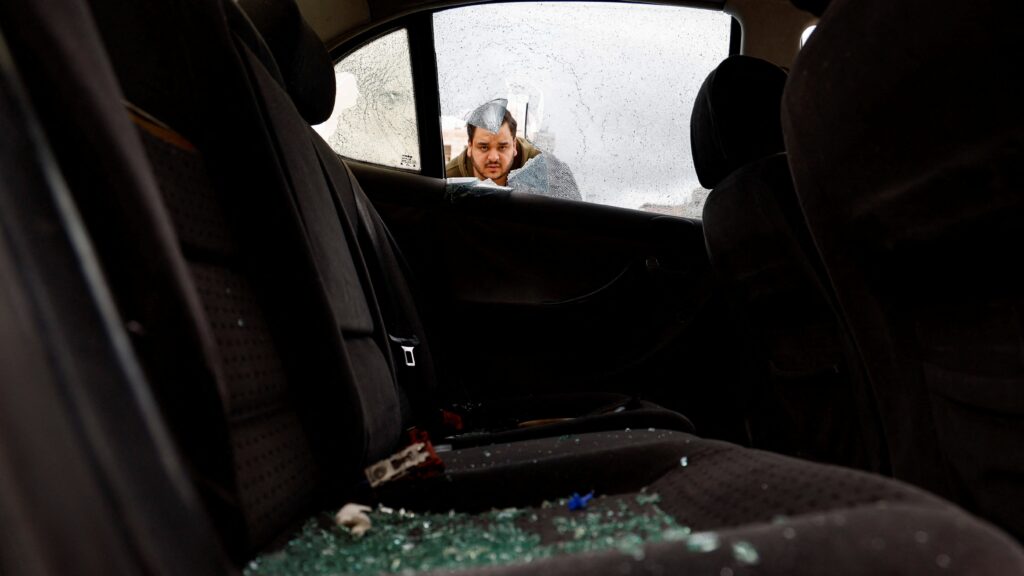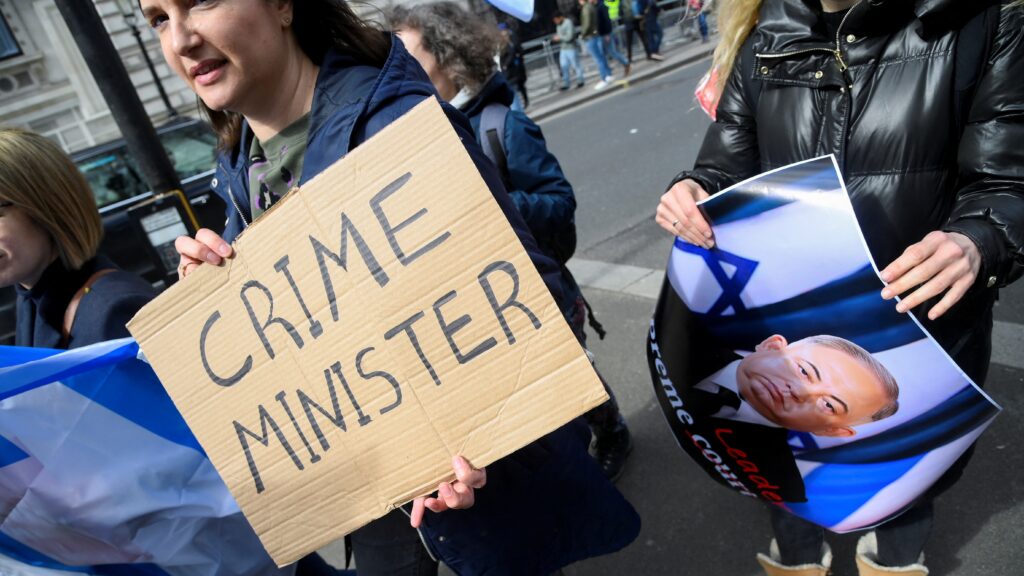Nestled in one of Bethlehem’s quaint alleyways is a small convenience store selling refreshments to visitors. Located in the West Bank in an area designated under full Palestinian control, Bethlehem’s iconic past as an ancient city sits in stark contrast to today’s seething conflict of personal identity and survival.
The city’s otherwise quiet and centuries-old streets betray a palpable sense of emotional attachment its inhabitants feel toward the place — Palestinians, who feel they have lost something many generations have called home. As the shopkeeper tells me during my visit in December, the traditional herbs he is selling come from “our land.” Two words uttered with a deep and emphatic sense of ownership and pain. Two words that sum up the Israel-Palestine conflict.
On Dec. 29, the day after I left Palestine, Israel’s new coalition government between Benjamin Netanyahu’s Likud and two ultra-orthodox parties began its first day in office. Some analysts believe this new alliance will inject an even more belligerent and defiant energy into the territorial expansion of Israel’s borders. Described as the most right-wing in Israel’s history, the new government’s policy guidelines strike an ominous tone, stating that the “Jewish people have an exclusive and inalienable right to all parts of the Land of Israel.”
It may be logical, then, to expect this regime to unleash new horrors on the Palestinian people. But lest we forget, 2022 marked the deadliest year for Palestinians in the West Bank since 2006. With 2023 on track to exceed that record fatality rate, the reality is that the new government has merely rebranded Israel’s existing brazenness in outright terms. The coming days will simply be a testimony to the lived reality of occupation that the Palestinians have endured for years.

Speaking to The New Yorker in January, Palestinian lawyer and activist Raja Shehadeh described the previous Israeli government’s record of violence in the West Bank and the treatment of civilians and their property as “terrible, terrible, terrible.” That violence has been escalating: Israeli forces killed 146 Palestinians through Dec. 19 of last year, compared with the 75 killed in 2021.
“The current government is bluntly executing settlements,” Dalal Iriqat, a professor specializing in diplomacy and conflict resolution at the Arab American University, tells me by phone from Ramallah.
She adds that this aggressive program of annexing Palestinian property is just an extension of a decades old pernicious policy, the only difference being that previous governments did so under the garb of “diplomacy and pretense.” Indeed, more than 140 settler outposts have been established in the West Bank since the 1990s, effectively altering the region’s landscape. Amnesty International described the practice as “apartheid” in a damning report last year.
Though they have been deemed illegal under international law, Israeli settlements have seen an exponential increase of 5,700% in the past 50 years, growing from 12,403 in 1972 to 719,452 in 2021. These numbers have become unpalatable even for Israel’s previously ubiquitous defenders who are now calling out its territorial amassment as heresy and seeing it as a mockery of the two-state solution that has been trumpeted for decades.
The incumbent regime has effectively removed, for the first time, the mask of diplomacy worn by previous Israeli administrations, a mask that has been used to sanctify Israel on the international stage. The years of brutal killings and mass atrocities that the Palestinian people have faced tell a different story — one that many can no longer ignore.
Despite being one of Israel’s closest allies, the White House has yet to extend an invitation to Netanyahu to visit the United States. In a highly unprecedented move in March, the Biden administration called on the Israeli ambassador to explain why his government was undoing part of the 2005 law on settlement withdrawals, which prohibited Jewish settlers from entering four districts in the northern West Bank as part of an agreement to cede the region to the Palestinians.
This new wave of settler violence has drawn global attention, but the truth is Palestinians have endured indiscriminate killing and widespread property damage for years. The difference now is that the incumbent regime has effectively removed, for the first time, the mask of diplomacy worn by previous Israeli administrations, a mask that has been used to sanctify Israel on the international stage. The years of brutal killings and mass atrocities that the Palestinian people have faced tell a different story — one that many can no longer ignore.
Even some members of the Jewish diaspora are finally becoming disenchanted with the increasingly extremist policies of the Jewish state, which they fear is teetering on becoming a rogue nation. During Prime Minister Netanyahu’s recent visit to the U.K., protestors lined up outside 10 Downing Street holding placards including one that read “Crime Minister.” As Sharon Shochat, one of the protest organizers told the BBC, “For the first time in a really long time, British Jews are really taking a stand. We don’t want anything to do with what we’re seeing in Israel. The racism, the extremism, the deterioration from democracy and liberal values.”

But even though the new regime has awakened a “moment of doubt and anxiety” for supporters of a Jewish state, the instinct to keep anti-Israel sentiment out of popular discourse and policy retains a firm grip.
Harvard Kennedy School’s unceremonious rejection of former Human Rights Watch director Kenneth Roth’s fellowship earlier this year because of his criticism of Israel during his time at HRW makes a striking case in point. It shows that Israel will be able to push its hubristic new advocacy for an unequivocal right to a Jewish homeland with impunity. That message was underscored by the U.S. Secretary of State Antony Blinken’s diplomatically lackluster visit to the region earlier this year — and by the noticeable lack of conversation about Palestinian rights in the pro-democracy protests that are currently rocking Israel.
Since the escalation of violence following a raid by Israeli forces on a refugee camp in the West Bank city of Jenin in January, I’m compelled to revisit the painful zeal with which the Palestinian shopkeeper I met spoke of his homeland. His profound sense of longing is echoed by every Palestinian who yearns for a home free from political violence.
But there is little reason for optimism. As Iriqat says from Ramallah, we “can only expect more violence.”

